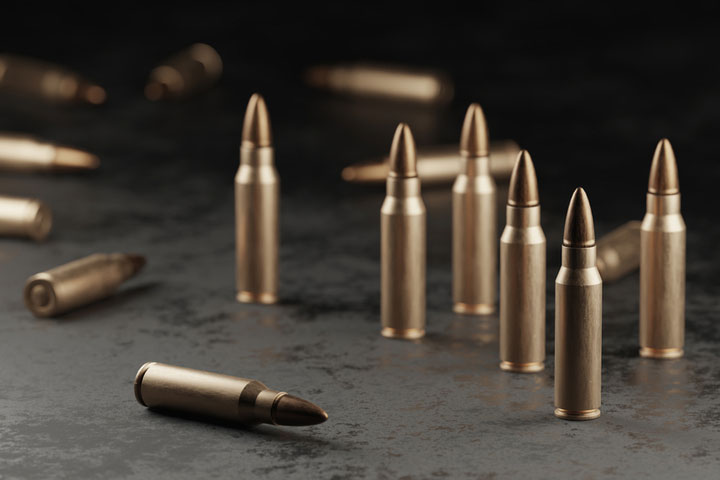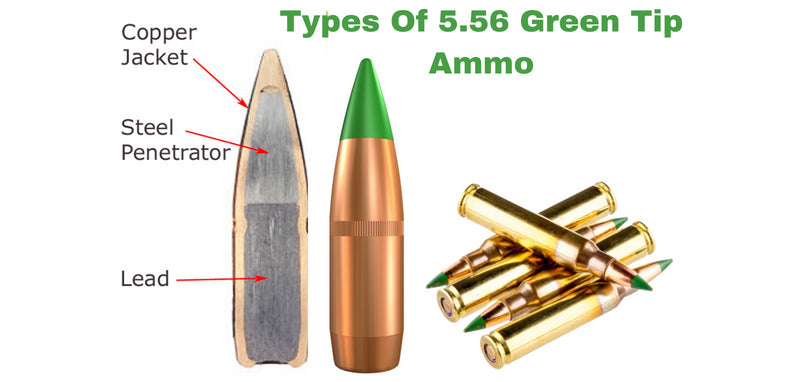Rumored Buzz on Ammunition Pro Llc
Rumored Buzz on Ammunition Pro Llc
Blog Article
Ammunition Pro Llc Things To Know Before You Buy
Table of ContentsEverything about Ammunition Pro LlcThe Best Strategy To Use For Ammunition Pro LlcExcitement About Ammunition Pro LlcThe 2-Minute Rule for Ammunition Pro LlcSome Ideas on Ammunition Pro Llc You Should Know
The standard components of ammo coincide for rifle, gun, and shotgun ammo. Understanding just how ammunition works is an essential aspect in being an accountable gun proprietor. Today we're looking at the what the basic components of ammunition are and exactly how they function together to terminate a round. The standard components of ammunition revealed on a 9mm. Online Ammunition Store round.It houses the primer and powder. The bullet is seated outdoors end of the instance. When you terminate a bullet out of a semi-auto weapon, the gun's extractor lifts the case from the shooting chamber and it flies out of the gun. The case is also occasionally described as coverings, brass, or cases.
A gun's shooting pin strikes a cartridge's guide. The guide is located in the rim of the instance of a rimfire cartridge.
Ammunition Pro Llc Things To Know Before You Buy
Gunpowder following to the case that generally contains it. It is usually a mix of saltpeter, charcoal, and sulfur.

We call the projectiles for shotshells, which we terminate through shotguns, slugs and shot. A slug is one strong item, typically made out of lead. Shot is a team of pellets constructed out of lead, steel, bismuth, or tungsten alloy. Shot pellets can can be found in various dimensions and amounts. Now that you have a fundamental understanding of the basic components of ammo, you can really feel a little bit extra confident in just how your gun and ammo function!.
Indicators on Ammunition Pro Llc You Should Know
Stay on top of Special Deals, Development Notice of Sales, and Shop Events
Enjoyable reality: Grains are utilized to describe the mass of a bullet due to the fact that completely back in the early days of firearms, it was a dispenser's unit of dimension, and an usual measure was required to determine just how much bring about utilize to make cast lead bullets (Shooting Supplies). 'Grains' as an unit of action for weight copulates back to old times, and represents the weight of a grain of wheat

(https://www.bpublic.com/united-states/dover/professional-services/ammunition-pro-llc)For referral, the weight of a paper clip is around 16 gr. So, we understand that grains are a measure of mass, and more = larger, and heavy is great, right? Yes, hefty is good, yet mass of the projectile isn't the only point you need to think about when selecting a round for your firearm.
The Only Guide to Ammunition Pro Llc
Fun truth, this is the origin of the term "Rifle" ex lover. The result this spin has on projectiles is a stabilizing one the bullet revolving maintains the nose pointed straight, in the exact same way that a flawlessly spiraled football throw is going to be much a lot more stable and precise in trip than an unsightly duck, end over end throw.
How does this connect to grain weight? Imagine you're on one of those play ground carousels, the ones with bars you hold on to while it rotates.
The same effect occurs with bullets. The much heavier the projectile, the more effect a quicker rotate will certainly have on it.
The Buzz on Ammunition Pro Llc
However there's another factor that we need to consider when choosing a grain weight for our ammunition. As hinted at above, bullet rate, or the rate of the projectile, is a significant element when identifying the best grain weight projectile to make use of. Rate is affected by a couple of significant variables, including the type and amount of propellant (gunpowder), barrel size, and bullet weight.

The most typical grain weight rounds for 9x19mm cartridges are 115gr and 124gr. These are usually lead core, totally jacketed (FMJ) rounds. Both of these grain weight cartridges will perform well in factory 9mm hand guns, to typical gun distances (as much as 50 yards). 115 grain rounds are the most typical (and for that reason least costly).
Report this page